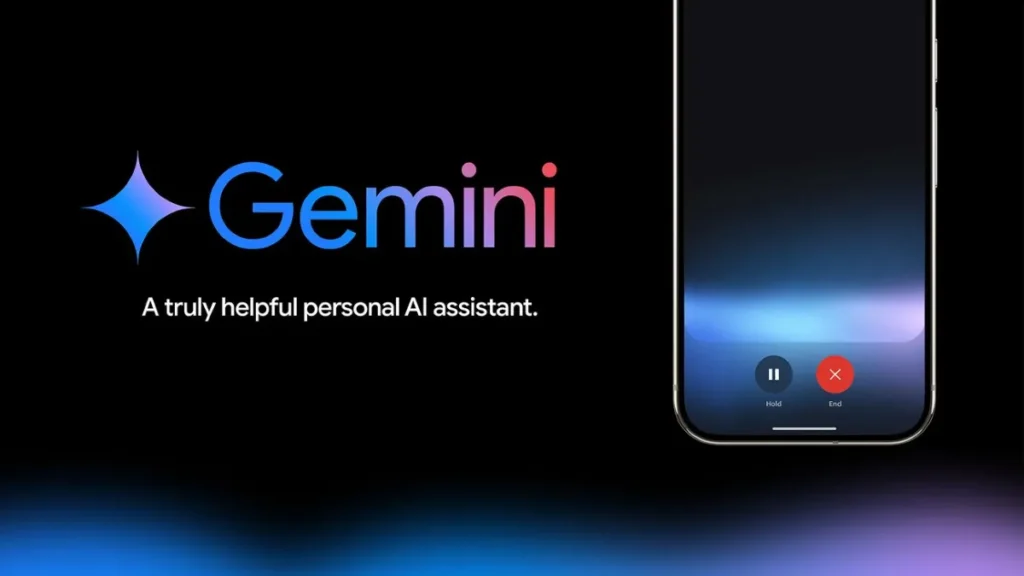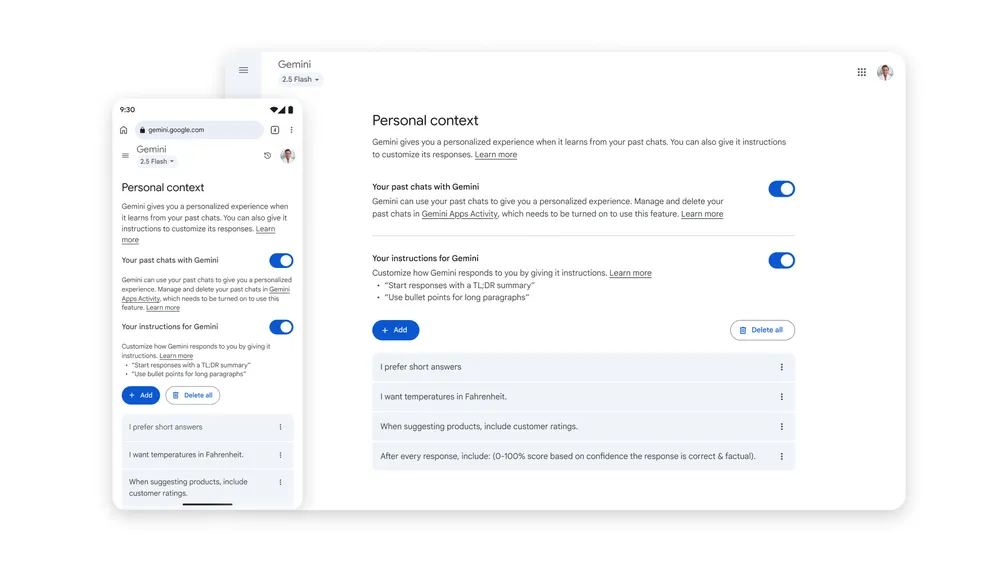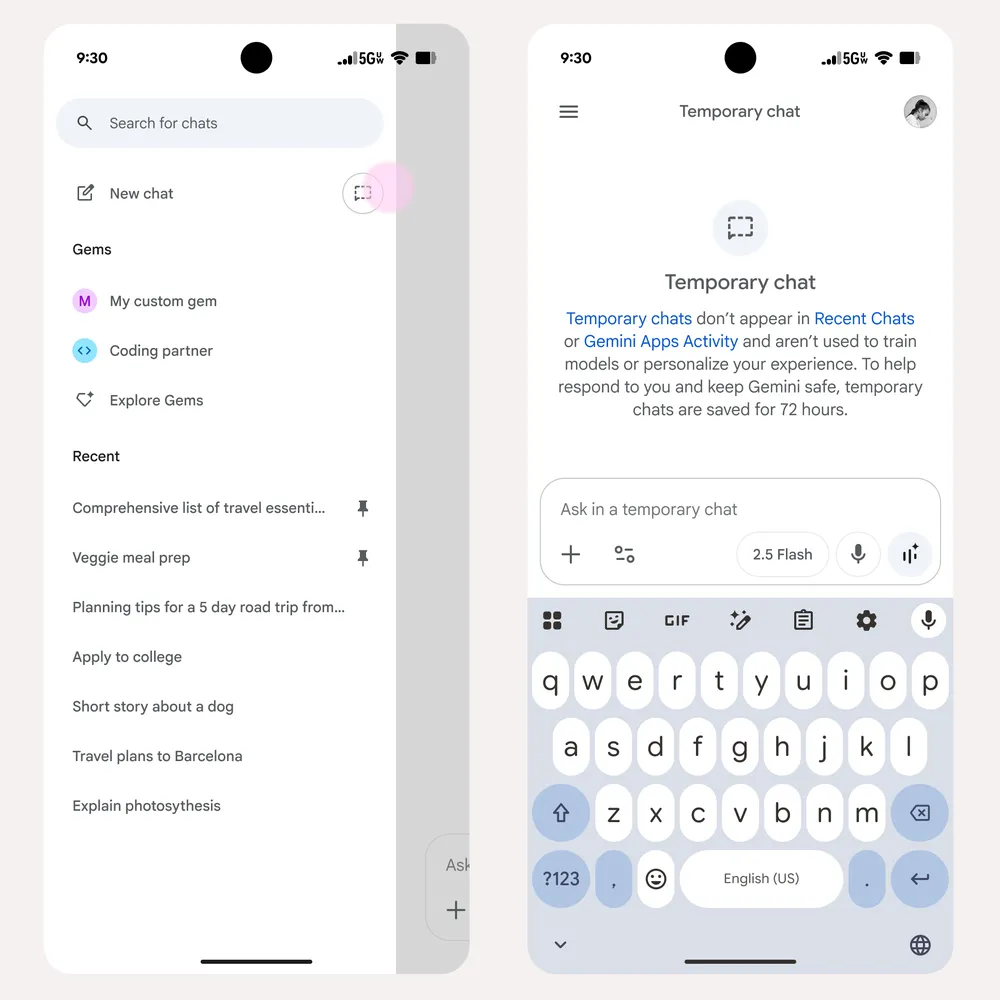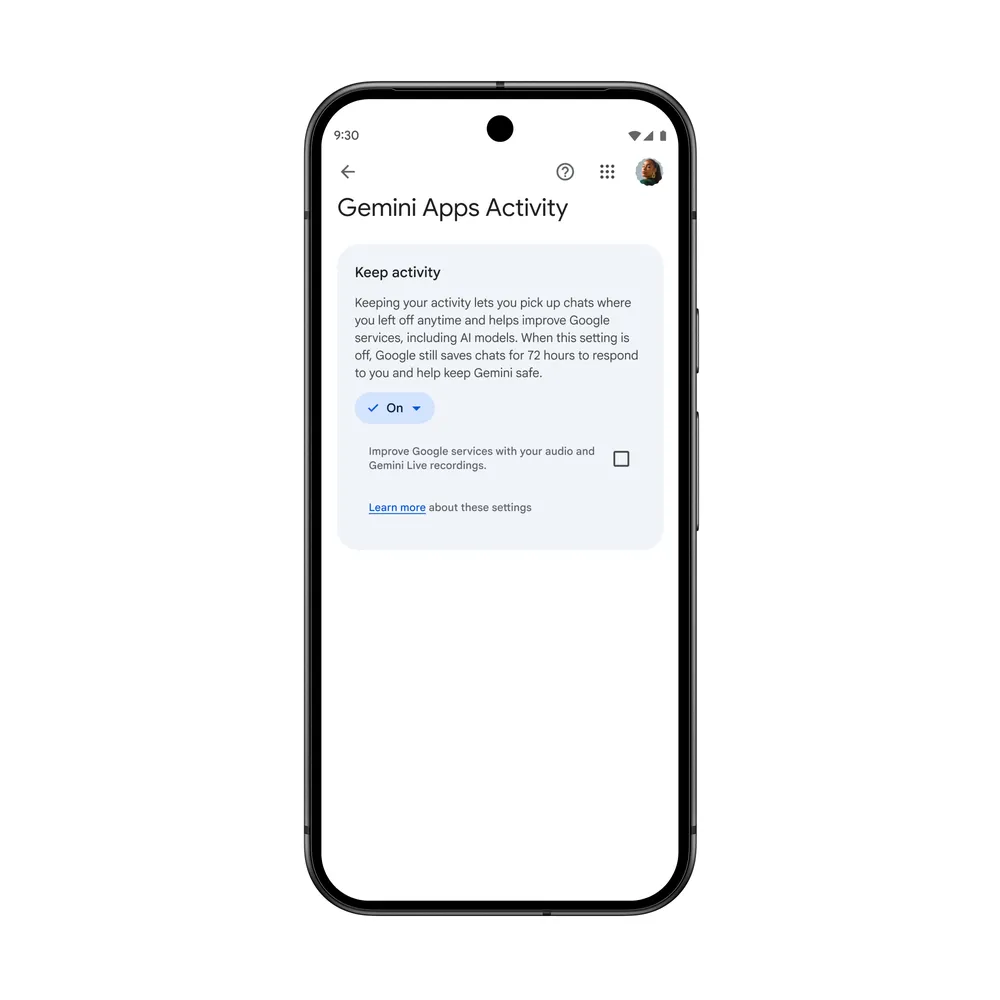Google Gemini memory upgrade introduces smart personalization with enhanced privacy control. Learn how Gemini AI memory features adapt to your needs, store preferences securely, and put you in control of your data.

Google is rolling out significant enhancements to Gemini AI, introducing advanced memory features and privacy-first modes to elevate user experience while keeping user data in check. From automatic recalling of past chats to private Temporary Chats, the Gemini memory update is reshaping how users interact with AI assistants. Here’s everything you need to know about the Gemini AI memory update, including new controls to keep your data safe.
Table of Contents
What’s New in the Gemini Memory Update
Google has launched two notable additions to Gemini AI: a default-on memory function that recalls past conversations for personalized responses, and a “Temporary Chats” mode that ensures certain interactions leave no lasting traces. The latter is ideal for sensitive topics that demand discretion.
These updates represent a shift toward deeper personalization while offering users clearer control over how Gemini retains and uses their data.
Personal Context: Gemini Remembers for You
Your Gemini AI assistant now can automatically retain “Person Context”—meaning it remembers your preferences and interests without prompting. This smart memory is enabled by default, but you can disable it anytime under the Personal Context settings.

For example, if you previously shared an interest in Japanese culture, Gemini may later suggest Japanese-inspired content when you ask for recommendations. This allows for richer, contextually tailored conversations—making Gemini feel more intuitive and helpful.
These enhancements are currently rolling out to users of the Gemini 2.5 Pro model in select countries and will expand to other versions soon.
Temporary Chats: Privacy on Demand
If you want to drive a topic but don’t want it to shape future responses, “Temporary Chats” is the feature for you. These one-off sessions:

- Don’t appear in recent chat history
- Are not used to train Gemini or inform personalization
- Are auto-deleted after 72 hours
This mode is especially convenient for personal, sensitive, or one-time queries—and a strong statement in favor of privacy-conscious AI experiences.
Why It Matters for U.S. Users
The Gemini memory feature brings personalization to new heights, eliminating the need to repeat details and making AI responses more relevant. But with that power comes responsibility—and Google is responding with clear data controls.
- Smart, yet optional memory: Personal Context enhances convenience, but you’re not locked in.
- Privacy-first design: Temporary Chats offer peace of mind for sensitive conversations.
- User agency restored: Toggle options like “Keep Activity” (formerly “Gemini Apps Activity”) let you regulate how your chats are used by AI.
Turning Off Gemini Memory and AI Training
Want more control over Gemini’s use of your data? You have options:
- Disable memory by toggling off Personal Context in the settings.
- Opt out of Gemini’s use of your data for training by turning off Gemini Apps Activity (soon renamed Keep Activity).

- Delete past conversations manually or set them to auto-delete after 3, 18, or 36 months.
- Use Temporary Chats for interactions you don’t want retained.
These steps ensure your preferences are remembered only when you choose—and forgotten when you prefer.
Gemini’s Integration with Android and Apps
As Gemini becomes more integrated into Android, it’s getting deeper access to functions across messaging and phone apps—sometimes even when tracking is disabled. Google claims these features are safe, but concerns remain over consent and transparency. In response, users have turned to disabling Gemini app activity, limiting app permissions, or even switching back to alternative assistants.
If these permissions are a concern, you can:
- Disable Gemini access via app settings on Android
- Replace Gemini with Google Assistant as the default
- Restrict Gemini’s access to apps like WhatsApp and Messages through your phone’s privacy controls
Summary Table: What This Gemini Memory Update Means
| Feature | What It Does | User Control |
|---|---|---|
| Personal Context | Remembers user preferences and details for personalization | On/Off via settings |
| Temporary Chats | One-off chats erased after 72 hours | Opt-in per chat |
| Data Sharing Options | Enables auto-deleting or saving chat activity to train AI | Configurable via settings |
| App Integration | Gemini can interact with third-party apps | Manage permissions manually |
How to Use These in Your Daily Life
- Want consistent, personalized help? Keep Personal Context on—but ensure sensitive details are safe with Temporary Chats.
- Concerned about AI learning too much? Disable Keep Activity and rely on ephemeral interactions.
- Using Gemini across Android apps? Go into settings and restrict access or choose a different digital assistant.
- Need transparency? Gemini will display if saved info influences its response, so you’ll know when memory played a role.
Bottom Line
Google’s Gemini memory update intelligently blends convenience with privacy. The assistant can now remember what matters for better suggestions—yet it stays centered on user control, offering Temporary Chats and disabling options for data use. As AI becomes more entwined with our lives, Gemini’s new features provide a strong example of personalization done responsibly.
google gemini memory upgrade, gemini ai memory features, google gemini personalization, google gemini privacy control, gemini ai update, google gemini smart memory, google gemini security features, google gemini ai personalization, gemini ai privacy settings, google gemini data control
Thank You for visiting Tech Uplifter!
Don’t forget to Subscribe to our Official Newsletter for latest updates.

